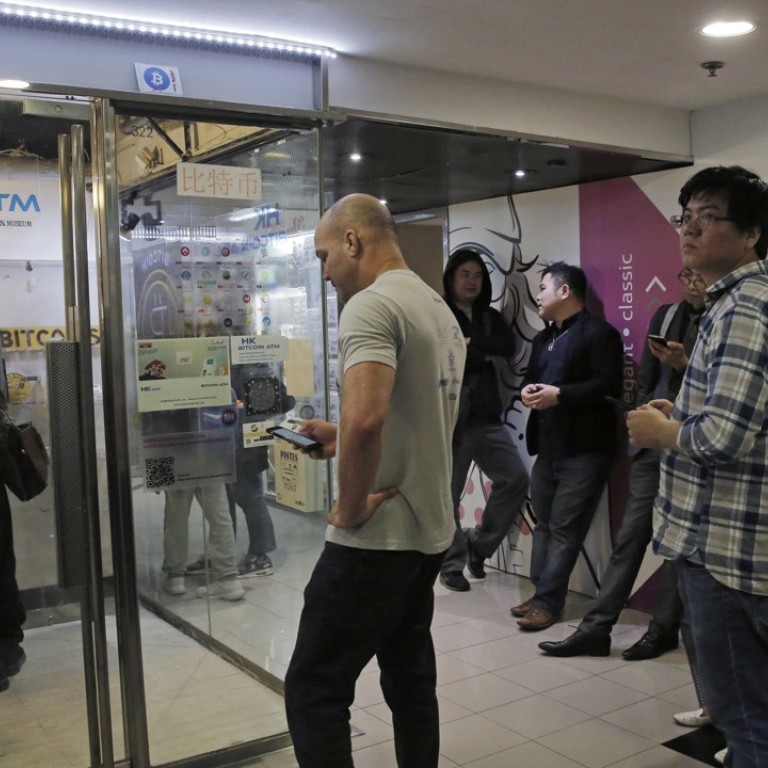
Hong Kong won’t ban digital currencies but will educate public on risks via campaign
Yet as an open economy, city won’t mean tell investors what to buy and not buy
The explosion of unregulated initial coin offerings (ICOs) and volatility in the price of virtual currencies is of concern to Hong Kong policymakers, who on Monday said it would not ban them, but would educate people about the risks of such investments.
The public education campaign would highlight that cryptocurrencies have fluctuated in price, are not backed by any physical commodity or the issuer, and are subjected to hacking risks.
Hong Kong’s bitcoin businesses suffer after local bank accounts frozen
The bureau is running the campaign together with the Investor Education Centre, a subsidiary of the Securities and Futures Commission.
But “in such an open economy [as Hong Kong], [we] will not tell investors what to buy and what not to buy,” Kelvin Wong Tin-yau, the centre’s chairman, said.
Why Chinese love bitcoin but ‘old money’ Hong Kong doesn’t: a former trading platform operator speaks out
According to the bureau’s undersecretary Joseph Chan Ho-lim, investors in Hong Kong may not understand the dangers of investing in ICOs and cryptocurrencies. And after reading positive news about the products in the media, they may see it as a sure-fire way to get rich quick.
“When we asked some young people why they bought cryptocurrencies, many of them cared less about the projects mentioned in the [ICOs’] White Paper … they just wanted to make quick money by speculating on the cryptocurrency exchange,” Julia Leung Fung-yee, executive director of the intermediaries division of the commission, said.
Bitcoin latest: prices, policies and politics
Leung added that ICO issuers already had to follow existing laws and regulations if the digital assets they issued fell within the category of a security or investment scheme.
Chairman of the Hong Kong Bitcoin Association Leo Weese said that if the government were looking to turn people away from such digital investments, its campaign could have the opposite effect and bring more interest to bitcoin and cryptocurrencies.
“But I think we should be talking about this. We should know the difference between what makes a good ICO [and what doesn’t] and how we differentiate between scams and legitimate projects,” he said.

